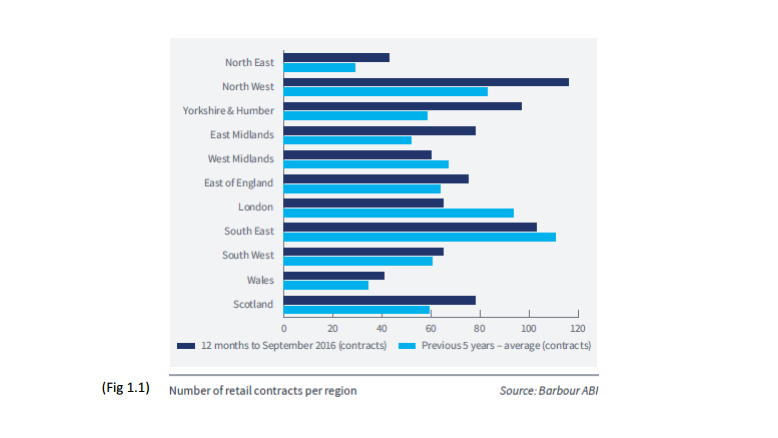Government tax avoidance measures could cost development industry £660m a year
Government plans to clamp down on tax avoidance could have the unintended consequence of causing the UK to lose out on as much as £660m development a year – the equivalent to the construction of Westfield London every year, and approximately 9,000 construction jobs.
The British Property Federation (BPF) has warned that Government proposals to restrict the tax deductibility of interest – which will essentially increase the price of debt – could have a disproportionate effect on debt-reliant industries such as real estate and infrastructure.
The Government has been consulting on recommendations made by the OECD to combat multi-nationals ‘shifting’ profits between different jurisdictions in order to take advantage of the lowest tax rate. It is proposing to restrict the tax deductibility of interest to within 10-30% of a company’s earnings. Interest costs are currently wholly deductible for tax purposes, subject to certain anti-avoidance conditions being met.
The BPF supports the aims of this initiative but is concerned that the proposals go beyond what is necessary to combat tax avoidance and will actually harm investment in UK towns and cities.
In its response to the consultation, the BPF has warned that increasing the overall cost to real estate borrowers will likely lead to a decrease in investment in real estate – a sector which contributes 5.4% of the UK’s Gross Value Added, and which is responsible for building new homes and turning around struggling town centres. It notes that the measures could also affect the UK’s global competitiveness as an investment location and argues that pensioners – who collectively own swathes of real estate through their pension funds – will end up with lower returns as a result of the proposals.
The BPF recommends that interest payments to unrelated parties be given full tax relief, as they pose a very low risk of tax avoidance. The Government should also wait to see how other OECD countries implement the measures so as to not end up out of line and lose competitiveness. Finally, the BPF argues it makes no sense for tax exempt investors such as REITs to be subject to the proposals.
Ion Fletcher, director of policy (finance) at the British Property Federation, commented “While we are wholly supportive of the Government’s plans to clamp down on tax avoidance, the current proposals go much further than is necessary and are particularly punitive for capital intensive industries like real estate. Almost a million jobs around the country rely on sustained investment in commercial and residential property and the proposals put these at risk.
“By making sure the proposals work with – rather than against – the grain of capital intensive industries, the Government could clamp down on tax avoidance without damaging the prospects of regeneration projects throughout the country. We hope that by working with Government, we can come up with a framework that tackles tax avoidance without damaging investment.”
Bill Hughes, head of real assets at Legal & General Investment Management, said “At a time where the private sector’s investment in the totality of the built environment needs to increase, there is a risk that the BEPS initiative acts as a material disincentive. It is critical that the regime is shaped in such a way as to avoid acting as a brake on long-term institutional investment in regeneration and infrastructure, the vast majority of which is for the public benefit.”
















